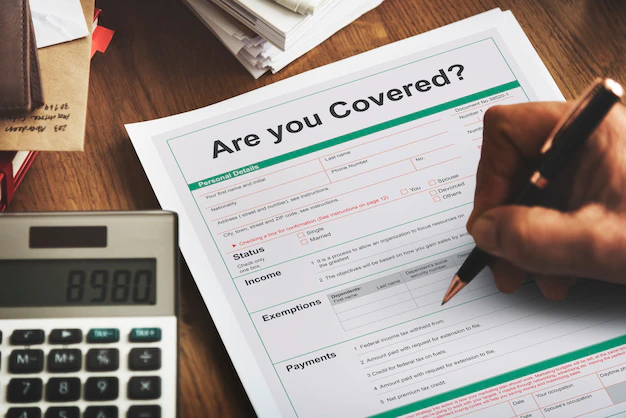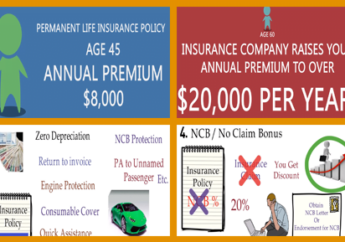8 Key Points When Buying Insurance for Transportation Business
by Abdul Aziz Mondal Insurance Published on: 04 October 2022 Last Updated on: 24 September 2024

If you’re a transportation business owner, you know how important it is to have the right insurance for your company. It protects your assets and employees and can prevent costly penalties and even criminal charges if something goes wrong.
Unfortunately, many types of insurance policies are available on the market, which makes it hard to establish which transportation company insurance is right for your business.
This article will review some of the most common types of transportation-related insurance policies to find one that fits your needs perfectly.

1. Check the Stability of Insurance Carrier
Transportation is the lifeline of the economy of any nation. There are more than 275 million registered vehicles in America, and this load on the roads is the reason behind the country’s accidents. It is, therefore, necessary for a transport company to have an adequate amount of insurance from a reputed insurance company.
In the event of a claim, it is necessary that you can count on your insurance company to pay out on time. The best way to ensure this is by choosing an insurer with a solid reputation. Check the carrier’s financial stability and track record for paying claims, but also check how well they treat their customers when things go wrong.
To do this, look at customer reviews online or on social media sites like Facebook and Twitter. Find out how well these companies respond to any complaints made by their clients and what those responses are like.
Choose an insurance company with an established history of good customer service and fair claims practices backed up by their track record.
2. Understand the Types of Policies and Coverage for Your Business
Choosing the right type of insurance for your business can be confusing, but it will be worth it in the long run.
When deciding which policies to get, you’ll want to look at all the different types of policies available for your business and figure out what’s best for your situation. Each insurance policy has its benefits and limitations, so there is no one-size-fits-all approach when selecting an insurance plan.
If a policy offers something that would benefit your business, like roadside assistance or rental car reimbursement, then by all means, get it. However, ensure that whatever coverage you choose is adequate to protect against potential risks while operating as a transportation company.
3. Find an Agent Who Understands Your Transport/Taxi Business
When you’re looking for an insurance agent, finding someone who seems like they have your best interests in mind can be tempting. But you should take the time to ensure that this person does understand your business. There are more than 1.2 million insurance agents in the US, and you may choose one according to geographical location and convenience.
You need an agent who understands what it means to be a broker, agent, or representative in transportation (taxi) insurance. A good way of finding out if they do is by asking them some questions about their experience in this area:
- How long have they been working in transportation (taxi) insurance?
- What are their specializations within the industry?
- Do they currently work with other companies that provide transportation (taxi) insurance services?
4. Pay Attention to the Cost of Coverage and Total Risk Exposure
When choosing a transportation insurance policy, it’s vital to understand the cost of coverage and total risk exposure.
The cost of coverage depends on the type of business you have. For example, if you’re transporting hazardous materials, your insurance will be more expensive than that of a company that carries food or clothes.
The total risk exposure, however, is as necessary because it directly affects your bottom line. Total risk exposure is the total amount of money that could be lost if an event happens and something bad occurs, such as a flood or fire that damages property owned by your business.
Total risk exposure is calculated by multiplying the cost of insurance by the probability of a loss happening:
Cost of Insurance x Probability = Total Risk Exposure
5. Don’t Forget to Ask About Discounts
Don’t forget to ask about discounts. Some discounts are available to large companies, those with a good safety record, and those with multiple policies with the same insurance provider. You could also ask about discounts for having specific equipment on your vehicles that enhance safety or improve fuel efficiency.
6. Learn About Claims Handling History
You must learn about the company’s claims history when buying insurance for your transportation business. You can ask them directly or request their claims report from the Service Great State Insurance Exchange (SGSI). This list has all the claims they have paid out over the past ten years. If they have only paid out one or two small claims, this could indicate that they offer poor coverage and may not be reliable in helping with large-scale incidents such as lawsuits or property damage.
7. Ask About Covering Cargo and Freight Broker Bonds
If your company is involved in transportation, you’ll want to be sure that the insurance policy you choose covers cargo and freight broker bonds. A freight broker bond is a type of surety bond that ensures carrier compliance with federal laws and regulations.
A reason why it’s crucial to have a freight broker bond is it helps ensure that your business will be reimbursed for any losses incurred by clients if they are not paid on time. In addition, the bond protects against fraud committed by employees of your company or carriers working with you.
8. Always Ask for a Free Quote Before Signing a Policy
One of the most important things to consider when buying an insurance policy for your transportation business is whether you have received a free quote. Insurance companies are legally required to give you a free quote before selling you any insurance policy.
The quote should be based on your business type and should include information about what is covered and what isn’t protected by the policy. The premium amount will also be listed in this document so that consumers know how much they will pay out of pocket each month or year.

Determine What Type of Policy Works Best for You
The insurance industry in the US is the biggest insurance market in the world and not showing any signs of slowing down. You can get insurance for anything to almost everything in the US. However, you must determine what policy works best for you and your business before selecting one. Finding an agent who understands your industry and has a policy that will cover your needs is crucial.
Hope this article has helped you understand the ins and outs of insurance for your transportation business. Remember, each policy has benefits and limitations, and there is no one-size-fits-all approach when choosing an insurance plan. However, you should be well on your way toward getting the coverage you need at a price that makes sense.
Additionals:







































































































